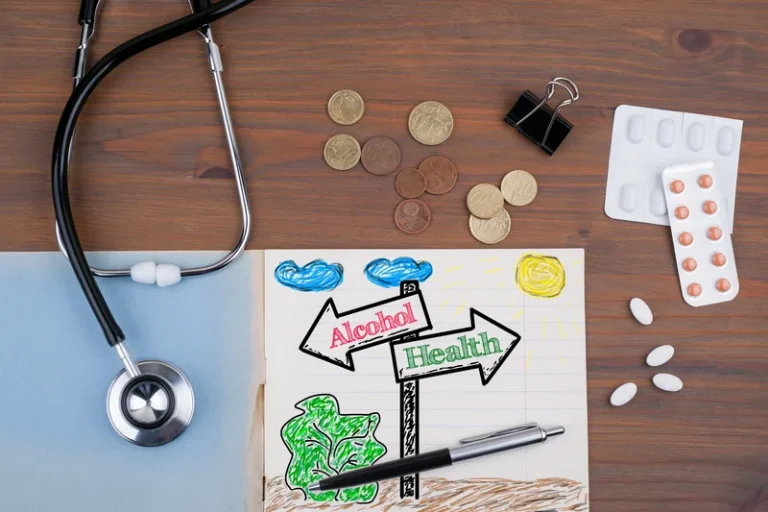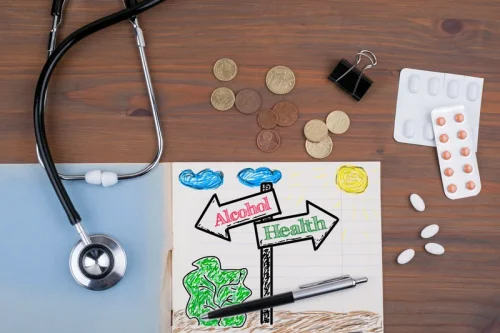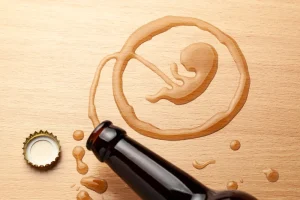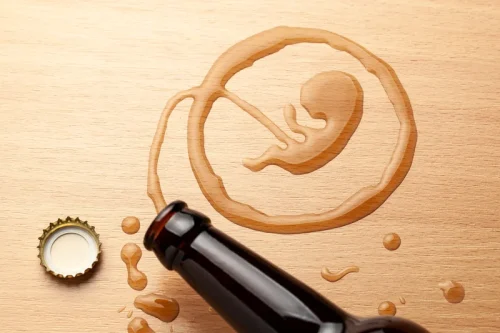
MAT combines therapy and FDA-approved medications to address the physical and psychological aspects of addiction, increasing the chances of successful recovery and reducing the risk of relapse. It is important to consult our medical professional at Gateway Rehab to determine if MAT is the right option. Learn the truth about common myths surrounding addiction and recovery and find out how seeking help can lead to successful long-term recovery. And no one in a power or policy advocacy position in the U.S. seems to notice, or care about, the negative consequences of this approach. The phrase “once an addict, always an addict” is a classic example of the stigma surrounding addiction.
- Treating the person holistically – addressing underlying issues, providing counseling and therapy, and putting in strategies to prevent relapses – increases chances of success.
- I answered that this was a logical and true answer, since getting drugs on the street was always more deadly than taking drugs under medical supervision.
- It’s important to remember how hard it was to take a step toward recovery, and it’s something to be proud of.
- In this article, we have debunked some of the most common and enduring myths surrounding addiction.
Myth #6: Treatment is Not Effective
- The impulse to blame people for their own addictions is natural, but the reality is far more complicated.
- Form genuine connections with others, build trust, support, and respect.
- Many think loved ones will think less of them, it will affect their status at work, or their friends will judge them for their addiction.
- The easy solution we seek instead of facing reality is to label addiction a medical problem.
- There is no sign that the failure of this perspective is causing or will cause any prevailing actors to change their thinking.
- Psychological factors, including underlying mental health disorders such as depression, anxiety, or unresolved trauma, can contribute to the vulnerability to addiction.
Although they are prescribed by medical professionals, they can still lead to addiction. It’s a common misconception that prescription drugs are safer than illegal substances, but that isn’t the case. Recovery needs support from healthcare professionals and loved ones. Treatment should be affordable and accessible to everyone seeking recovery. Life without drugs or alcohol is possible with the right support system. Overcome shame and silence by seeking help and supporting others.
How Does Medicare Cover Mental Health?
The presence of a mental health condition can increase the risk of developing an addiction. Proper treatment, such as a dual diagnosis program, is necessary to address both addiction and mental health issues. Sandstone Care offers compassionate environment and comprehensive treatment tailored to unique needs. This leads to embarrassment and silence, hindering individuals from seeking help or honestly speaking about their battles.
Myth #20: You can’t force someone into treatment.
- Regular check-ins with healthcare providers, peer support groups, and therapy sessions can help individuals cope with difficulties and stay motivated.
- Recovery, on the other hand, is a lifelong process that involves physical, psychological, and social changes.
- While it is not for everyone, medication-assisted treatment is only one part of a recovery plan for those whose medical providers have deemed it necessary.
The journey =https://ecosoberhouse.com/ of addiction often starts with the initiation of substance use, driven by various factors such as genetic predisposition, environmental influences, and psychological factors. Over time, repeated drug or alcohol use can lead to changes in the brain, making it increasingly difficult for individuals to control their substance use. There are many people who can use multiple substances and never develop an addiction, while others can use a substance only once and quickly spiral out of control. The potential for addiction is often made up of numerous factors including genetic predisposition, environmental factors, psychological disorders, and upbringing. While initial use may be a choice, over time, continued use can make changes in the brain that make it difficult to stop. This is why relapse is common and many will need multiple attempts at recovery before it is successful.

Myth #17: Relapse means treatment has failed.

Just like general mental health treatment looks different for everyone — different medications, different styles of therapy — so does addiction treatment. What one person with an addiction needs, or how they recover, will look different myths about addiction and recovery from the next person. Some believe that sheer willpower is enough to overcome addiction.

Myth #8: Addicts Lack Willpower or Motivation
Changing the approach based on how someone is doing can help their progress. People wrongly think they are safe because they come from healthcare professionals. We need to educate people about responsible medication use and the risks of certain drugs, so misuse can be prevented. We should also raise awareness about the risks of prescription drugs. Misuse or overuse of a prescribed medication can lead to dependency or addiction. If we show the risks, people can use them responsibly and find alternatives for pain or mental health.

Dispelling Myths about Substance Use
Substance abuse exists everywhere regardless of race, gender, age, or socio-economic status. Older, white, middle-class adults are the face of the opioid epidemic, with many graduating to heroin abuse. In almost every aspect, this latest epidemic opposes the stereotype of addiction. The stereotype surrounding addiction usually includes features such as being a young male minority from a low socio-economic background. They are usually imagined as being unemployed and involved in criminal activity.
#2. Addiction is a choice.
Recovery is an on-going process that needs continuous effort and sustained commitment. It means making huge changes in lifestyle and creating healthful methods to stay sober. Regular check-ins with healthcare providers, peer support groups, and therapy sessions can help individuals cope Alcoholics Anonymous with difficulties and stay motivated. To break down these misconceptions and promote better understanding, we must educate others about the nature of addiction. We can do this by sharing accurate information and challenging stigmas, creating a space which encourages open conversations about addiction.
- In other words, doctors were doing wonderfully, although opioid and other drug deaths continued to surge.
- Staying busy, reconsidering coping strategies, and focusing on mental health can get you back on track to recovery.
- While it is true in some cases that a person may choose to experiment with a substance, it does not mean that they actively chose to struggle with addiction.
- Educating individuals about addiction’s complexity, and debunking common myths, encourages people to seek treatment.
- Certain genetic variations can make some people more susceptible to developing addictive behaviors when exposed to drugs or alcohol.
- Let us delve into the final insights that will reshape our perception and pave the way for a more empathetic and inclusive society.
With the proper guidance and supervision, prescription medications can provide important, and sometimes life-saving, support during withdrawal. Once a patient reaches a certain point in their progress, their medical team can then begin to ease up on the use of medications to treat their symptoms. Detoxis the time period when you focus on getting all of the toxic substances out of your system. For this reason, it’s best todetox at a recovery center, or at least in an outpatient setting, so doctors can monitor your symptoms and intervene if necessary. The first step in seeking help for addiction is recognizing that you have a problem and being willing to reach out for support. This can be a difficult and scary step, but it is crucial in starting your journey towards recovery.
Myths about addiction or substance use disorder (SUD) are widespread and can be harmful. These myths often perpetuate stigma, hinder treatment, and prevent open conversations that could facilitate recovery. These tremendous impulses may help one to understand the irrational and compulsive behaviors of an addict. Addicts will keep using and abusing substances, despite life-threatening circumstances. Quitting most often necessitates the help of professionals and treatment programs.

